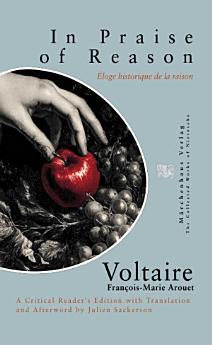關於本電子書
This modern Critical Reader’s Edition includes an illuminating afterword tracing Voltaire’s intellectual relationships with Enlightenment thinkers and philosophers (including Locke, Diderot, Rousseau and Newton), containing unique research into his influences and economic attachments, a comprehensive timeline of his life and works, a glossary of Enlightenment terminology, and a detailed index of all of Voltaire’s writings. This unique professional translation renders Voltaire’s sharp, satirical prose into modern language to preserve the original clarity and movement of the text. Combined with the scholarly amplifying material, this edition is a groundbreaking exploration of Voltaire’s classic works and his enduring artistic and philosophical influence, and influence on modern Protestant-Atheistic Theology.
The writing is effusive and ornate, mimicking the high-flown rhetoric of official eulogies—except the usual subject of praise (a recently deceased dignitary) is replaced with an abstraction. This clever twist allowed Voltaire to laud Enlightenment ideals under the pretext of a harmless compliment to an idea. At times, the Éloge carries a playful irony, as when “M. de Chambon” solemnly credits Reason for miracles far more impressive than any found in scripture. Yet for all the light touch, the sentiment is sincere: Voltaire truly is paying tribute to the power of critical thought to improve the human condition.











